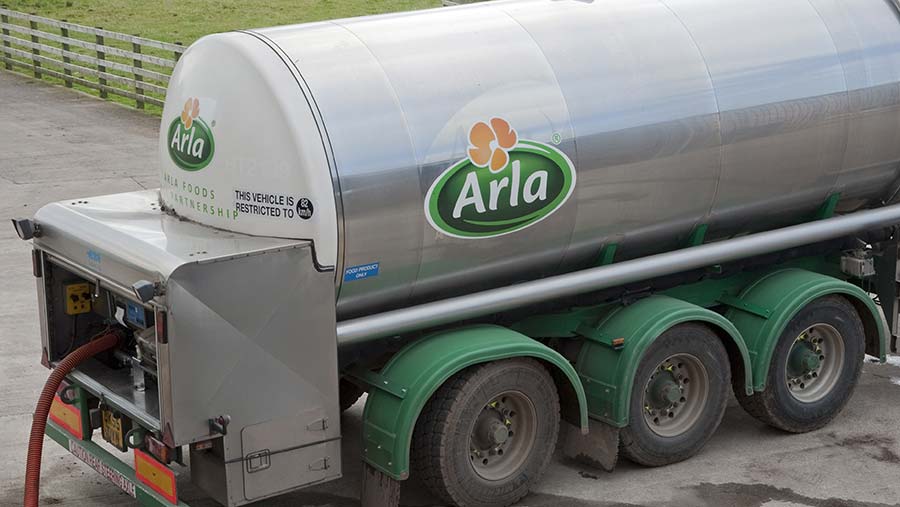Arla offers premium for dairy best practice
 © FLPA/Rex Shutterstock
© FLPA/Rex Shutterstock Members of the UK’s largest milk producer co-op are being encouraged to join the Arla UK 360 programme to ensure sustainable production of high-quality milk.
In return for producing to best practice standards in six areas, they will receive a premium that covers the additional cost of complying with the requirements, which the co-op says are essential to building a profitable, responsible dairy farm business.
However, Arla will not disclose premium levels, citing business confidentiality.
The six areas are:
- Animal health and welfare
- People development
- Environment and natural resources
- Community engagement
- Economic resilience and reinvestment
- Research and development to lead the UK dairy agenda
See also: Remortgaging farm property – how to reduce costs, stress and time
With a background of milk market volatility, growing consumer misunderstanding of the sector, polarised levels of support for UK dairy farmers and a new post-Brexit Agriculture Bill, the challenges for dairy farmers are mounting, says the co-op.
The 360 requirements are built on top of the existing Arlagarden assurance scheme, with which all Arla members are required to comply, said Graham Wilkinson, head of agriculture at Arla Foods UK.
Arlagarden focuses on milk quality, food safety and animal welfare and includes 16 standards to be met in addition to Red Tractor requirements.
The co-op wants retailers and other food chain partners to be part of the 360 programme.
Aldi is the first UK grocery retailer to sign up to it, funding a premium to a group of Arla’s farmer-owners to deliver the standards on farm.
The retailer will work with its group producers through the Aldi Dairy Farm Partnership to share knowledge through the supply chain to explore and tackle waste on farm, initially searching for ways to reuse or recycle farm plastic through the supply chain.
The 360 programme has been developed following a six-month trial with 79 Arla farmer-owners.
Additional areas that the programme will seek to address include breeding calves with purpose, cow behavioural studies, waste reduction and reuse, along with data-driven leadership.
